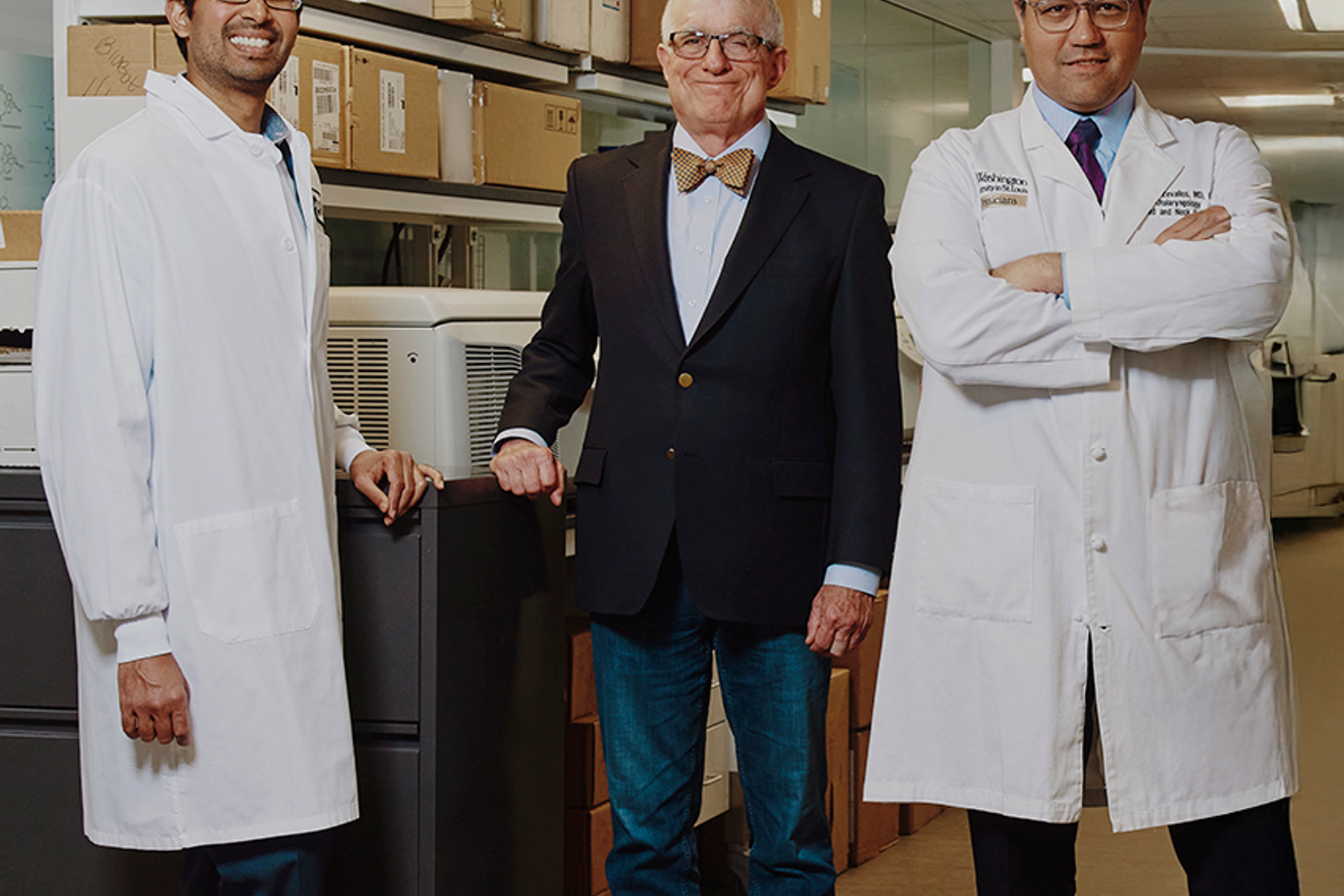Harnessing a novel bio-analyte to transform patient care.
A crucial challenge in oncology is detecting recurrence after surgery or radiation—early enough that clinicians can make a significant difference in patient outcomes. That ability has grown in recent years with the innovation of liquid biopsies, which identify tiny pieces of circulating tumor DNA in blood. But ctDNA is limited, both geographically and temporally. It can’t tell doctors where in the body a tumor is recurring, and it can’t detect recurrence immediately after surgery, limiting its diagnostic impact. Those inadequacies were visceral to Dr. José Zevallos, a head and neck surgeon at University of Pittsburgh Medical Center. He often heard a single overriding question from patients and their families: did you get it all? “That moment is life-changing for them,” Zevallos says, of that post-operative meeting. “They deserve a nuanced and sophisticated approach to the next steps of their treatment.”
Droplet, a diagnostics company founded by physician-scientists Zevallos and Dr. Aadel Chaudhuri, a radiation oncologist and liquid biopsy researcher at Washington University in St. Louis, uses a previously ignored biofluid to detect recurrence more quickly and with more sensitivity, giving patients and their care teams peace of mind. Droplet’s breakthrough innovation can be found in every post-surgical hospital room: the small bag of surgical drain fluid that is a staple of post-operative care. It consists primarily of lymphatic fluid. Typically it is thrown away. But Zevallos and Chaudhuri, along with veteran biotech executive Theresa Tribble, and cancer diagnostics pioneer Stan Lapidus, are developing Droplet to be a broad platform to use surgical drain fluid as a revolutionary diagnostic source, applicable across a range of disease types. “There's so much more information in this fluid than just whether there's cancer or not,” says Zevallos. ”Surgical drain fluid is a window into the physiology of the body that nobody's ever looked through before.”
Droplet’s initial focus will be on head and neck cancers, where there is a pressing need for diagnostic innovation. “It’s a cancer type where the surgeons and radiation oncologists are very involved with adjuvant care, but frankly there’s a lot of room for better precision,” says Chaudhuri. Existing methods have been focused on detecting increasingly small fragments of residual tumor in blood. Droplet shortcuts that approach, by collecting surgical drain fluid as a potential source of tumor fragments. Its inherent proximity to the tumor site allows Droplet’s custom assays to pick up recurrence sooner, more sensitively, and with more geographic precision, than existing blood-based testing. The clinical impact is significant. “We can use this new diagnostic tool to make more precise choices for our patients,” says Chaudhuri. With a clearer sense of the parameters of any residual disease, doctors can avoid unnecessary toxicity, without heightening the risk of recurrence. By testing for immune markers, Droplet’s platform will also be able to characterize a patient’s own immune response, opening the door to revolutionary new approaches to targeted care. And by collecting a sample immediately after surgery, Droplet can provide results soon enough to be actionable by a patient’s care team in adjuvant therapy decision-making—a clear enhancement over existing diagnostic tools.
A sweeping range of clinical applications comes into focus with the further development of Droplet’s novel liquid biopsy technology. Droplet’s assays can include multi-omic analyses—using multiple features to detect recurrence more sensitively and specifically than existing blood tests. The potential impact then expands beyond head and neck cancers to any solid cancer type where the tumor is surgically removed, and a drain is placed. Further into the future, surgical drain fluid analyses could be used to predict sepsis, wound infections, transplant rejection, and various responses to emerging therapies. Droplet’s platform will become available to not only identify cancer recurrence, but a full range of biomarkers relevant to patient care.
The potential clinical impacts are significant. “Droplet’s technology has potential to identify patients whose cancer will recur with unprecedented sensitivity, while also empowering doctors to more rapidly tailor treatment plans for the patients who need it most.”, says Droplet CSO Wendy Winckler.

